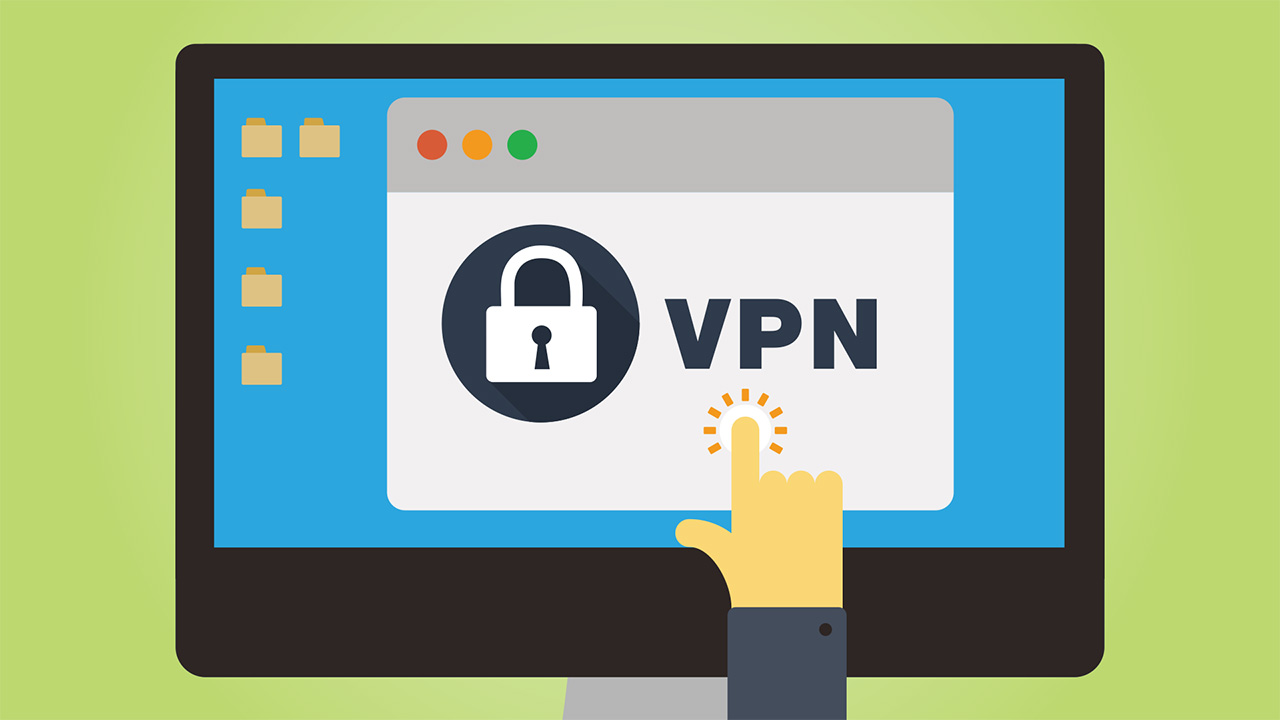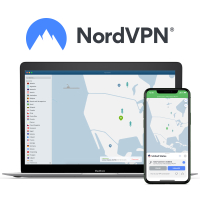What is OpenVPN?
OpenVPN is the ol' faithful of VPN protocols – and it still has use today

Whenever you use a VPN, an encryption protocol is used – and there a lots out there. These protocols determine how data is encrypted and moved between networks.
VPNs use these protocols in order to create a fast, secure encrypted tunnel for your internet traffic. In other words, it’s a bit like armor, keeping your interactions via the device in use safe from attack or decryption.
When using the best VPNs, a variety of these protocols are supported. However, while there are a number of them out there, it is OpenVPN that is both one of the most popular and useful.
Here, we'll explore what makes OpenVPN such a popular VPN protocol, as well as its downsides.
The best VPN: NordVPN
NordVPN is the #1 VPN on the market, according to our extensive testing. Not only does it have class-leading security and top-level speeds, it's also able to unblock just about every streaming service you could think of. Plans start from $3.39 per month, and you can even try it out risk-free thanks to its 30-day money-back guarantee.
What is OpenVPN?
OpenVPN been around for a long time – at least by the standards of the internet. Originally, OpenVPN was launched in 2001 by James Yonan. He had worked in computer science for a platform that evaluated the fitness of financial trading models. He was also an early pioneer in the push to make C language and coding tools for IBM.
He realized how vulnerable his data was online after he was forced to use unencrypted connections to remotely access his business network while in Central Asia.
This stirred Yonan to start a side project, creating an open-source project to encrypt data. In a strange turn of events, this side project was later discovered by Francis Dinah. He had faced suppression in Iraq while it was under the reign of Saddam Hussein.
Sign up to get the BEST of Tom's Guide direct to your inbox.
Get instant access to breaking news, the hottest reviews, great deals and helpful tips.
Dinah fled from Iraq and applied for asylum in Sweden before later travelling to the US where he heard about OpenVPN. Here, he realized the possibilities that OpenVPN could have and developed a business plan with Yonan.
Between the two men, OpenVPN was founded in 2001 and then became publicly available in 2002.
Over 20 years later and the tool is still going strong, providing private access for an array of clients and featuring in some of the most secure VPNs.
Put simply, OpenVPN allows two devices – no matter where they are in the world – to connect and communicate with each other in a protected manner. It defines how the data getting sent back and forth is encrypted, and how this information moves between servers and devices.
Part of the reason OpenVPN is such a popular VPN protocol is down to its compatibility with many operating systems. Along with that, it offers both security and flexibility to any VPN user. It isn’t always featured in the fastest VPNs, but its benefits come elsewhere.
Benefits of OpenVPN
So, why exactly should you use OpenVPN? There are a few benefits to the tool that make it especially useful.
OpenVPN’s communications are managed by Secure Sockets Layer/Transport Layer Security (SSL/TLS). That’s a lot of buzzwords, but it simply means it can confirm if you are connecting to a legitimate server and create new encryption keys to protect your data during a session.
Both SSL and TLS are encryption methods that can verify that your data hasn’t been altered or messed with in the session. This keeps passwords and sensitive data encrypted and difficult to discover for third parties.
Despite offering a lot of usability, OpenVPN keeps a flexible and configurable approach to its design. VPN providers can control a huge amount of how the service actually works.
They can decide to switch OpenVPN’s encryption algorithms and even optimize the VPN for security or speed. This includes the ability to extend the script with plugins, scripts and more.
Like a lot of internet projects, OpenVPN is completely open source. This means anybody can download the source code and analyze it for problems, add new features, or use it to make their own versions.
Despite offering a lot of usability, OpenVPN keeps a flexible and configurable approach to its design.
Thanks to its open nature, this tool has been expanded to work on just about every single platform out there. You can even check exactly how your connection is authenticated and encrypted for yourself.
Finally, OpenVPN’s OpenConnect client actually has a VPN kill switch built in. This stops your device from connecting to the internet if the connection to the VPN drops.
Drawbacks of OpenVPN
It’s not all positive though. Like any security feature, there are some drawbacks worth mentioning with OpenVPN.
Firstly, it was developed using the OpenSSL library. In recent years, vulnerabilities have been discovered in OpenSSL, including HeartBleed – a method in which people could get through the library's defense and steal protected information.
OpenVPN is also slower than some other VPN protocols, such as WireGuard. While they don’t have as many features as OpenVPN does, they switch this out for both speed and efficiency. Not the end of the world, but worth keeping in mind if you're looking for the absolute top speeds out of your VPN.
OpenVPN is slower than some other VPN protocols, such as WireGuard.
Another place where protocols like WireGuard are better is when it comes to newer encryption protocols. OpenVPN doesn’t support some of these newer versions.
Finally, OpenVPN’s configurability features aren’t usually available via a mobile VPN app, unless it has been written to support them directly.
In its style as a rather honest company with its followers, OpenVPN publishes all security concerns directly on its website for you to check in on.
Bottom line
Sure, there are some drawbacks to keep in mind with OpenVPN, but this doesn’t make it any less secure than other VPN protocols.
OpenVPN does suffer from some slower speeds compared to some of its competitors like WireGuard, but its configurability and flexibility is a really helpful feature for both VPN providers and users alike.
Its nature as an open-source platform and its open nature about changes, security issues and general mission also makes it a highly trustworthy option.
Alternative options such as WireGuard or Lightway are growing quickly in popularity but OpenVPN does remain a reliable option, despite its slower nature.

Alex is the AI editor at TomsGuide. Dialed into all things artificial intelligence in the world right now, he knows the best chatbots, the weirdest AI image generators, and the ins and outs of one of tech’s biggest topics.
Before joining the Tom’s Guide team, Alex worked for the brands TechRadar and BBC Science Focus.
In his time as a journalist, he has covered the latest in AI and robotics, broadband deals, the potential for alien life, the science of being slapped, and just about everything in between.
Alex aims to make the complicated uncomplicated, cutting out the complexities to focus on what is exciting.
When he’s not trying to wrap his head around the latest AI whitepaper, Alex pretends to be a capable runner, cook, and climber.
- Olivia PowellTech Software Commissioning Editor
